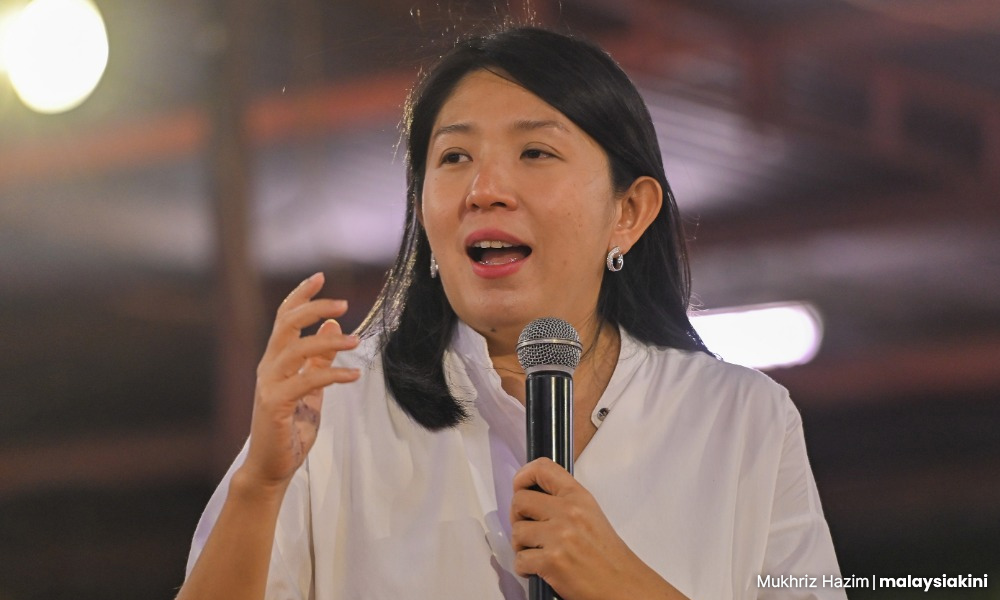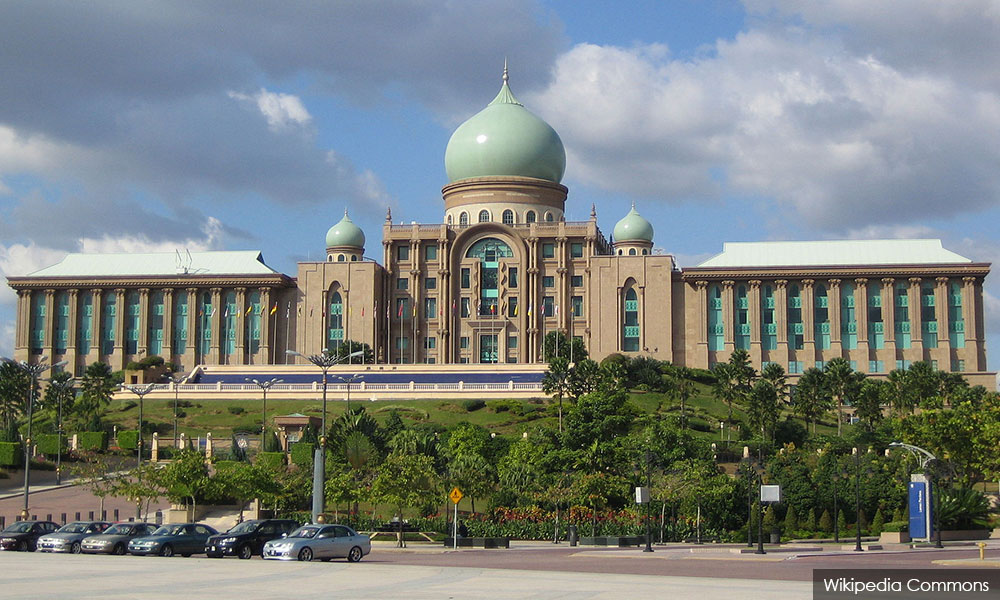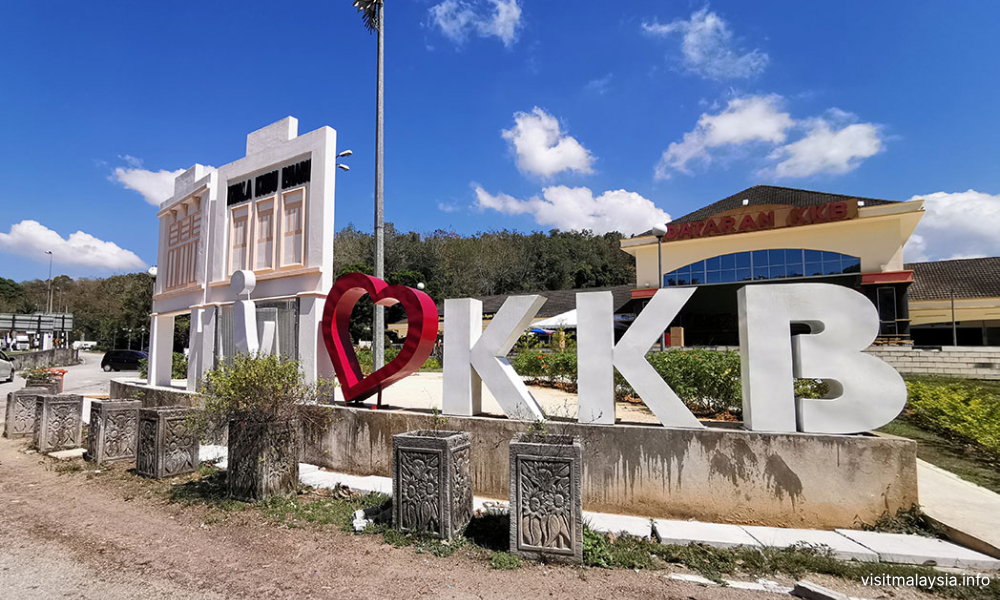Should Pang Sock Tao win in Kuala Kubu Baharu, she will become the fifth young women representative in Selangor - joining the ranks of Lim Yi Wei, Michelle Ng, Wong Siew Ki and also Jamaliah Jamaluddin, who currently serves as a state executive councillor overseeing public health and green technology.
Notably, all four of these representatives are under 36 and are already serving their second term as assemblypersons.
It's not the first time I've praised DAP's talent development structure and leadership succession pathway.
Some if not many of them, in their mid-20s, begin as local councillors, then progress to become state assemblypersons, then excos, and eventually, MP.
While not all of them follow the exact similar path which is essentially their trajectory of talent development and leadership succession, figures such as Seputeh MP Teresa Kok, Puchong MP Yeo Bee Yin and Youth and Sports Minister Hannah Yeoh have followed the traditional path, ascending from state legislature (assemblyperson, exco, speaker) to federal positions, including ministerial roles.
From my observations, the entry point often depends on background and to some extent political capital; individuals in their 30s or 40s with notable education and professional experience may be nominated directly for parliamentary seats, as seen with Bangi MP Syahredzan Johan.

Yeo, who is also a graduate of Cambridge University, skipped local councillorship, and exco-ship to directly become an MP with full ministership after serving two terms as a Selangor assemblyperson.
Deputy Communications Minister Teo Nie Ching, for example, was elected as an MP of Serdang when she was just 27 years old and currently serving the Kulai constituency. The aggregation of their pathway is seemingly determined by these two factors and certainly, their performance as elected representatives.
Pang's recent nomination as a candidate for the by-election, coupled with former deputy minister Liew Chin Tong's remarks, has drawn attention.
Guiding new talents structurally
In his post, Liew highlighted DAP's commitment to nurturing young leaders, a practice that has contributed to the party's growing success over the past six decades.
DAP demonstrates its dedication and readiness by identifying and empowering these talents, providing them with opportunities to grow and showcase their potential.
It is done by offering exposure and guidance while also evaluating their performance and contributions to the party and constituency, to ensure their continued relevance to the party.
The individuals abovementioned represent just a fraction of the young leaders within DAP nationwide. Others such as Ipoh Timor MP Howard Lee, Kluang MP Wong Shu Qi, Kota Darul Aman assemblyperson Teh Swee Long, Bukit Bendera MP Syerleena Abdul Rashid, Bagan Dalam assemblyperson K Kumaran, Ayer Keroh assemblyperson Kerk Chee Yee and many more, further exemplify the party's commitment to grooming a new generation of leaders.
Some may argue that each party has its own strengths and notable figures, and I have no objections to that viewpoint.
However, it ultimately comes down to the fundamental principles of organisational structure and strategy - individual prowess versus collective unity.
Organisational structure matters
While influential figures may leave their mark on history, it is the collective strength of an organisation, particularly a political party, that drives continuous success.
Even the most powerful individuals require an effective team to achieve their goals, highlighting the importance of collective effort in politics and leadership.

DAP's success in winning seats, despite numerous reallocations—such as Yeo from Damansara to Puchong and Teo from Serdang to Kulai, along with Lim Kit Siang's victory in parliamentary seats across five states in West Malaysia - serves as a testament to the power of collective strength from central to its branch.
Regardless of one's assigned constituency, party members unite their resources and efforts to secure victory, exemplifying the essence of collective action aimed at fulfilling the party’s overarching mission.
This collective endeavour is driven not by personal agendas or individual acclaim within the party but by a shared commitment to organisational success and advancement as a virtue.
In the case of DAP, critics often dismiss their success by pointing out that, regardless of their representation numbers, they are unlikely to be nominated for the prime ministership.
However, this overlooks crucial considerations. Political parties must deploy a paradigm shift from merely winning seats to effectively governing the country through legislative, policymaking and executive roles at both state and federal levels.
DAP's clear and strategic approach to talent development ensures that its members are gradually exposed to administrative responsibilities, providing them with essential training and knowledge as leaders and elected representatives, from local to federal levels.
This approach ultimately enhances their performance as elected officials and executives, leading to higher rates of re-election despite fluctuating support for political parties all over Malaysia. This appears to be a fitting denominator for navigating the volatile political climate of the present age.

While elements like favouritism, patronage and cutting corners may exist within any organisation, their prevalence can be minimised with a well-functioning internal working mechanism.
This mechanism revolves around the understanding that effective leaders are developed, not born. Embracing inclusivity, justice, and equality, the approach should focus on cultivating competent leaders through meritocracy and talent as an elementary baseline, supported by clear performance benchmarks to ensure their relevance in the party.
Such an approach serves to weed out opportunists and sycophants who seek personal gain with little to no meaningful contribution to the parry, instead of promoting individuals based on merit.
Those who engage in gatekeeping, fearing their own relevance may diminish when quality individuals emerge, perpetuate a toxic cycle. Without a reliable working mechanism to identify, nurture and retain talent, this cycle persists, leading to political fatigue both internally and externally, eroding inspiration and hope among the masses.
I had the opportunity to observe Pang’s campaign in the picturesque town of Kuala Kubu Baharu. Despite its location in the less developed region of Selangor, I was struck by the meticulous planning, organisation and cleanliness of the city.

Given that Kuala Kubu Baharu is relatively new in its development, credit must be attributed to the late Lee Kee Hiong for the outstanding state of the consitutuency.
Her enduring legacy must surpass mere political manoeuvring and intrigues offered by competing candidates, particularly the coalition that has failed the entire country, offering nothing new but another mediocre male candidate who put forth only gender superiority prowess with no trace or track record of excelling neither in academics nor governing.
May success again prevail by those who exude competency, integrity and honesty. May Lee’s legacy be reincarnated through adept, cheerful, hardworking Pang. - Mkini
TYRA HANIM holds Master’s Degree in International Relations from the University of Aberdeen and is the founder of Suara Anak Muda.
The views expressed here are those of the author/contributor and do not necessarily represent the views of MMKtT.



No comments:
Post a Comment
Note: Only a member of this blog may post a comment.